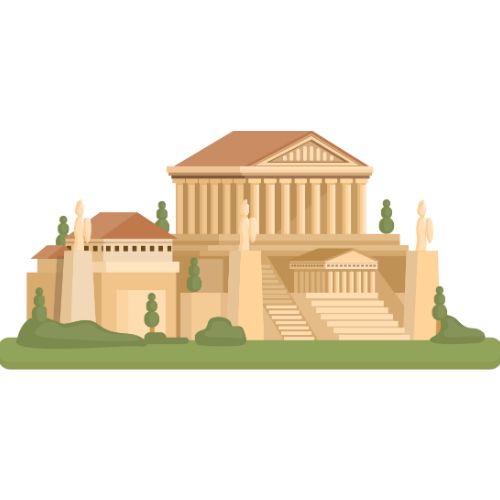Classics

The Classics curriculum provides learners with a broad, coherent and engaging study of the classical world. We explore the mythology & material culture of ancient Greece & Rome, cultivating an understanding of humanity, culture, literature & the origins of western civilisation. Throughout key stage 4 and key stage 5 we use ‘do now’ tasks to retrieve knowledge within a series of lessons or to revisit earlier content and support long term memory. Vocabulary is taught explicitly to allow learners to access the new concepts they are meeting in Classics and express their knowledge in the most accurate and astute ways. The curriculum is purposefully mapped to ensure learners become well rounded Classicists with the knowledge and skills to succeed at GCSE and A Level, to engage with the wider academic field, and to understand the pathways Classics offers.
At key stage 4, pupils begin by studying Paper 1: Myth & Religion following the units from 1.1 – 1.8. These carefully build on each other, step by step furthering and deepening our knowledge of a range of aspects of Ancient Greece & Rome including the gods, temples, festivals, foundation stories & the underworld. We frequently revisit earlier units through the threads that connect our myths, characters & civilisations. Pupils then move on to complete a study of Paper 2: The Homeric World through 2 components: Mycenaean Civilisation & Homer’s Odyssey. These are taught in a linear style, allowing students to fully appreciate the rich context of the time period and archaeology before delving into its literature which involves a study of heroism and themes such as the role of women, justice & revenge.
At key stage 5 students complete 3 units: World of the Hero, Greek Art and Love & Relationships.
World of the Hero is covered across both years beginning with Homer’s Odyssey & chronologically continuing onto Virgil’s Aeneid. Students develop an increasingly sophisticated level of knowledge and understanding of the epics themselves, the way in which they were composed, and the religious, cultural and social values of the societies within which they were set.
Greek Art is completed in the first year of A Level study, students have the opportunity to engage with a range of visual arts produced in 6th–4th centuries BC including freestanding sculpture, architectural sculpture and vase-painting. These 3 components build on each other and create links which give students an in-depth appreciation of Greek art & its profound effect on later periods.
Love and Relationships in the second year of study explores the thoughts & literature of Sappho, Plato, Seneca & Ovid. We consider ethical questions raised by these ideas and discuss aspects of love, desire, sex, sexuality and the institution of marriage.


